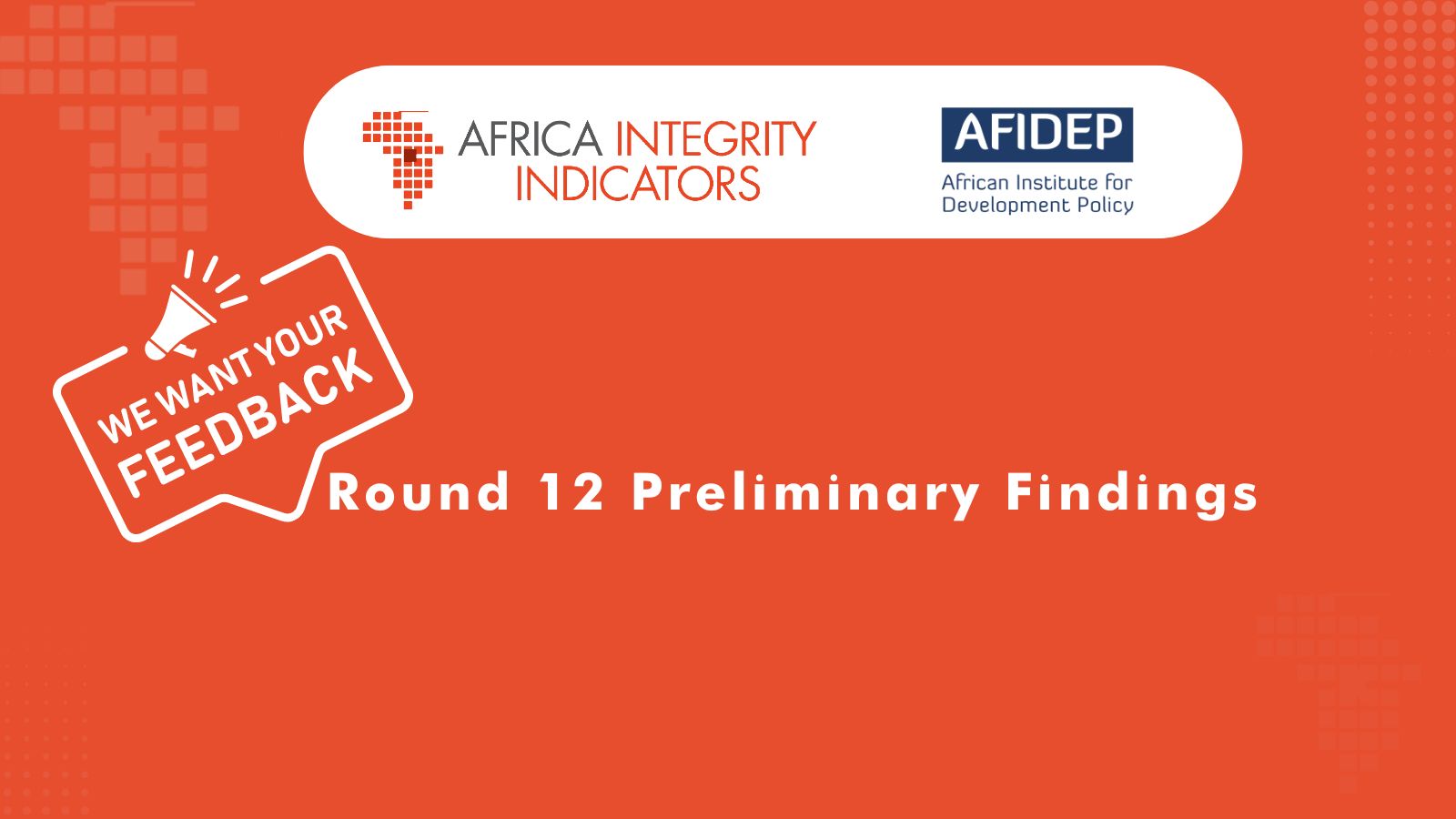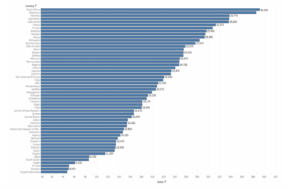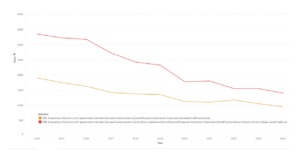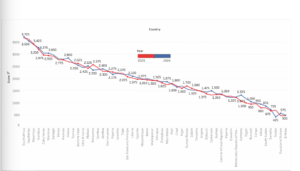News

The release the preliminary findings of the 12th Round of the Africa Integrity Indicators (AII), a project of the African Institute for Development Policy (AFIDEP), marks a significant milestone as it builds on 11 years of governance data spanning all 54 African countries. Understanding that the nature of the data collected can lead to contestations from various stakeholders including researchers, governments, CSOs and media, among others, stakeholders over a three-month period, are invited to carefully review the data and share any evidence or insights they may have.
Cumulative findings from Round 2 to the preliminary findings for Round 12 offer a comprehensive overview of governance trends over a decade. The top 10 countries are South Africa, Mauritius, Namibia, Seychelles, Cabo Verde, Ghana, Tunisia, Rwanda, Senegal and Kenya. The bottom 10 are Equatorial Guinea, Somalia, Eritrea, Sudan, South Sudan, Libya, Angola, Egypt, Djibouti and Congo.

Figure 1: Ranking of Countries based on Cumulative findings from Round 2 to Preliminary Findings for Round 12 (2014-2024)
The data from Round 12, covering the period September 2022 to September 2023, reveals several critical developments and trends across the African continent. This period witnessed significant political upheavals, including the onset of a civil war in Sudan in April 2023 between rival factions of the military government—the Sudanese Armed Forces under Abdel Fattah al-Burhan and the paramilitary Rapid Support Forces (RSF) led by Janjaweed leader Hemedti. Additionally, successful coups occurred in Burkina Faso (September 2022), Niger (July 2023), and Gabon (August 2023). There were also unsuccessful coup attempts in Sao Tome and Principe (November 2022) and Sudan (April 2023).
The preliminary findings of Round 12 indicate a mixed performance across various governance indicators. On the positive side, indicators related to women’s representation continue to excel. However, indicators concerning asset disclosures and political financing remain poor performers across the continent. This disparity highlights the ongoing challenges in achieving comprehensive governance reforms.
One of the most concerning trends observed is the continued decline in press freedom and the rise of censorship (including citizen-created online content). During the study period, Burkina Faso suspended two foreign media outlets (France 24 and RFI) and one private media outlet (Oméga). Similarly, there were arrests of several journalists in Tunisiaand Ethiopia, and internet interruptions in the Central African Republic (CAR), Senegal and Gabon, as authorities sought to control information flow during critical events like referendums and elections in CAR and Gabon respectively and social unrest in Senegal.

Figure 2: Evolution of the censorship of the media and citizen-created online content in Africa
Bloggers and social media users in CAR, the Democratic Republic of the Congo (DRC), Tanzania, and Kenya also faced increased scrutiny and crackdowns. In Seychelles, despite its high ranking (4th) in cumulative scores, had notable government interference in media operations, highlighting the complexities of maintaining press freedom even in relatively well-ranked countries.

Figure 3: Major Changes in cumulative scores for Round 11 (2023) and Preliminary Findings for Round 12 (2024) in Africa
As compared to Round 11, Sudan’s cumulative score saw a significant decrease in Round 12 due to the ongoing conflict, which has severely impacted the functionality of its institutions. The civil war has disrupted governance and undermined previous efforts towards stability and reform. Botswana also experienced a notable decline in its cumulative score, attributed to several factors. These include government interference in the judiciary’s independence, efforts to undermine workers’ unionization through the Public Service Co-Ordinating Bargaining Council (PSCBC) and restrictions on citizens’ ability to assemble freely. These actions collectively contributed to a regression in Botswana’s governance performance. In Guinea-Bissau, the failure of the Supreme Audit Institution to release timely audit reports and a decrease in the number of women represented in the National Assembly were significant contributors to its lower cumulative score in Round 12 compared to Round 11. These issues reflect ongoing challenges in transparency and gender representation in Guinea-Bissau.
In contrast, Comoros experienced a significant improvement, with an increase of 250 points in its cumulative score. This improvement was driven by a better working environment for NGOs, enhanced police oversight, and the publication of employment and poverty data. Unlike in Round 11, when the NGO Mebadja was banned for organising demonstrations, no NGOs were harassed or closed in Round 12. Additionally, a police officer accused of raping a Malagasy woman in custody was arrested, indicating progress in police accountability.
The feedback period is crucial for validating these findings and ensuring that the data accurately reflects the realities on the ground. We encourage all stakeholders to engage with the data and share their insights, contributing to a more robust and comprehensive understanding of governance in Africa.
Access the data here: https://bit.ly/4eztEXp
Send your feedback via email to aii@afidep.org or through the form here
Original post on the Africa Integrity Indicators website: https://bit.ly/4e1cAtf

